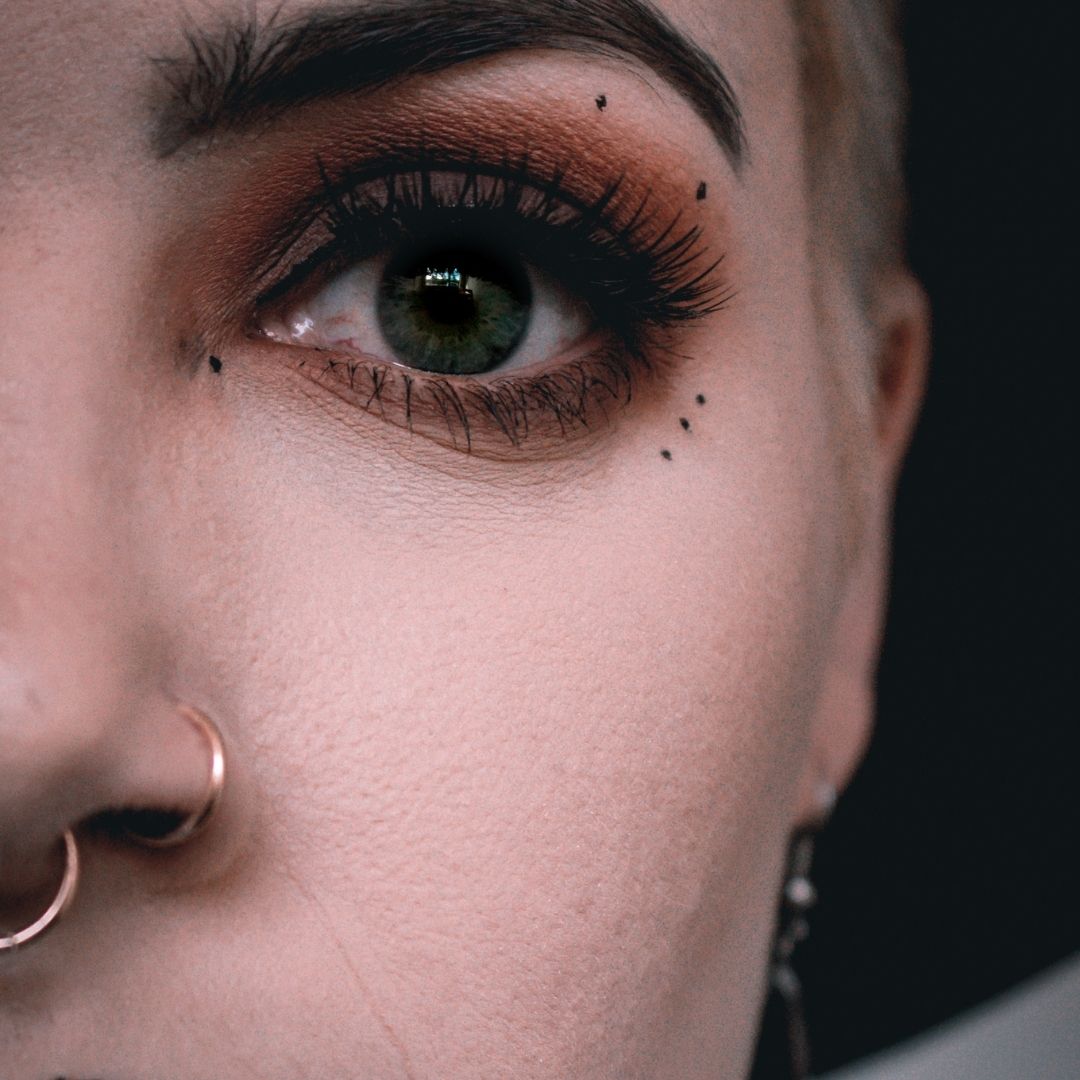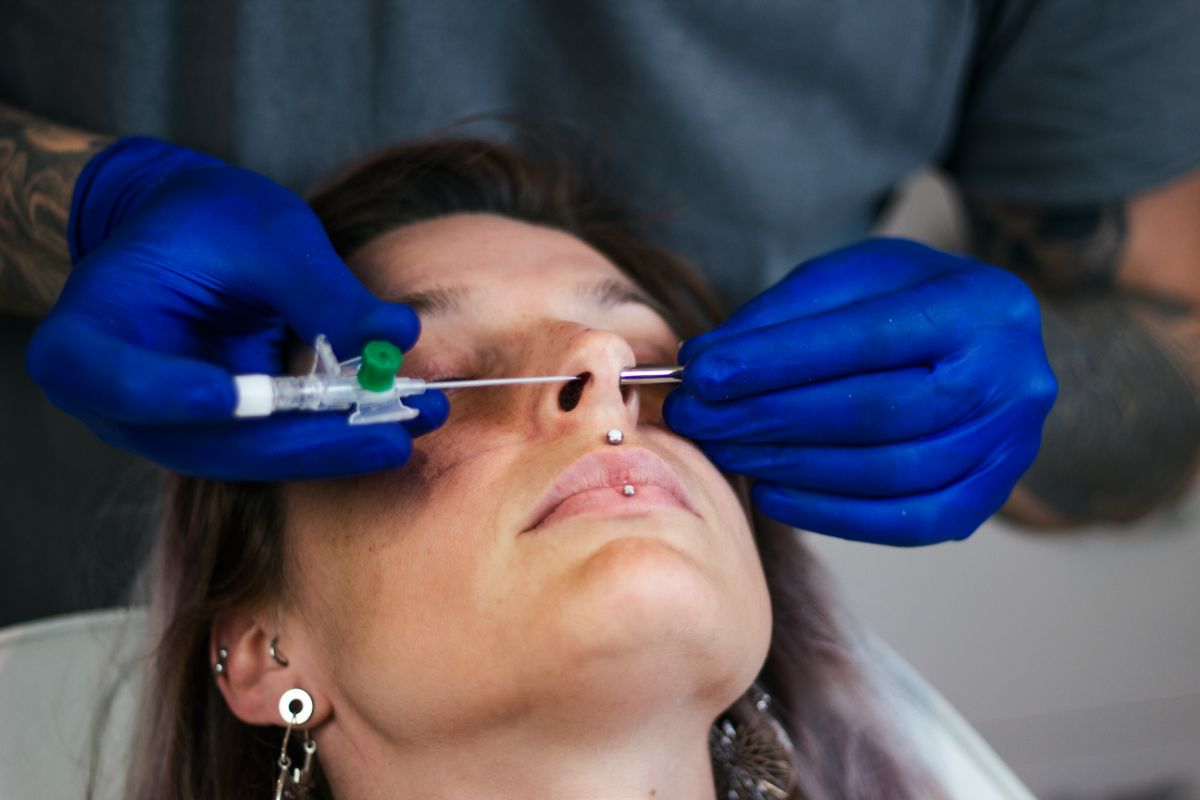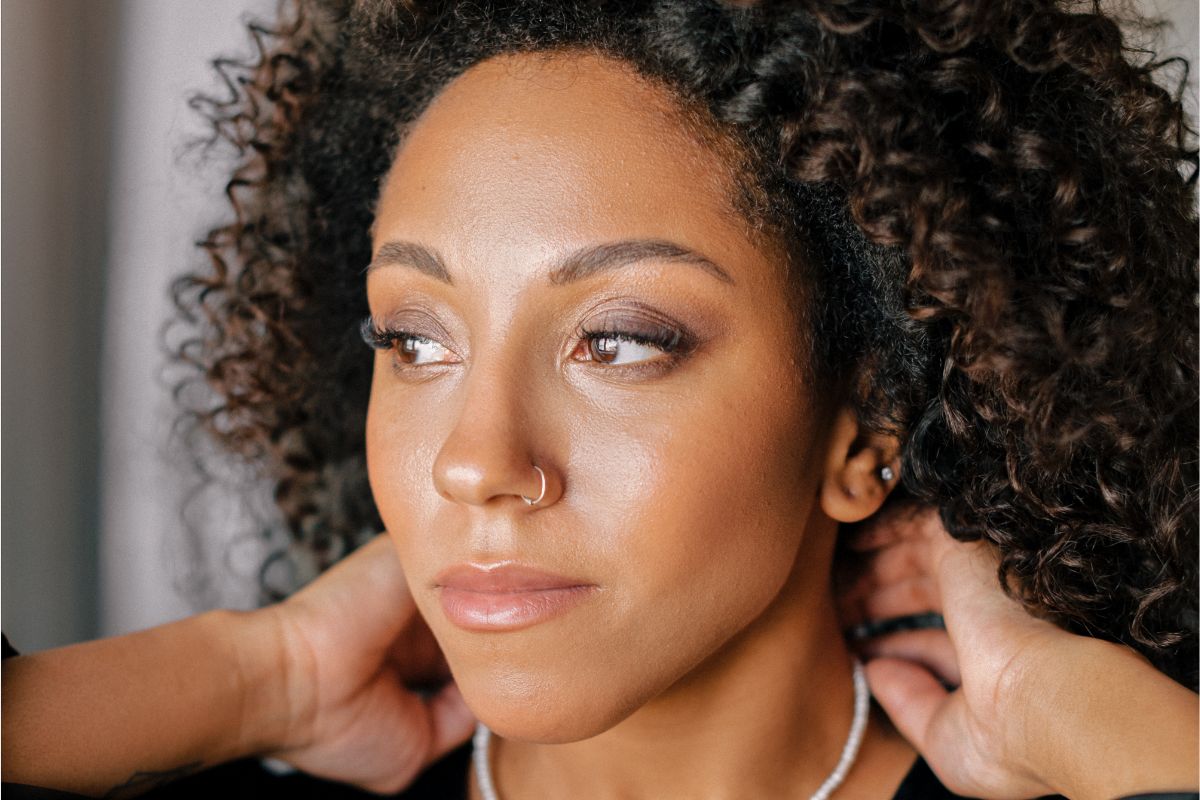Piercing trends are always fascinating. Who doesn’t get interested in a new piercing? If you’re into body piercings, we’re sure you have an inexplicable desire to explore more body parts. And it doesn’t help that your skin is the largest organ in your body. It’s your body, and you can do anything you want to do with it. But, you have to be extra careful.
If you are going to jump on the piercing bandwagon, make sure you know everything there is to know about it and not just the pretty piercings and shiny jewelry, you must also know the ugly parts like waiting until it has completely healed and identifying signs of piercing infection.
These are the parts you don’t see glamoured on social media. Usually, vloggers leave the nasty details out, and it’s up to you to figure it out on your own. So don’t fall into the trap just because you want to show off. Make sure you are fully informed.
One of the things people get confused about is the difference between an inflamed piercing and an infected piercing. In this blog, we’ll answer your questions.

FAQs About Piercing Inflammation and Infection
How Will You Know If a Piercing Is Infected?
According to experts, one of the signs that your piercing is infected is when the area surrounding it is warm, red, and has red streaks coming from it.
It’s also possible that you’ll see brownish or greenish pus coming out of the piercing. In addition, your lymph nodes may also be swollen. This is your body’s attempt to stop the infection.
If the infection is already severe, you will develop a fever. You’ll know if you have a piercing infection if all of the symptoms mentioned are present. When it does happen, make sure you notify a medical professional as soon as possible because the longer you delay getting treated, the more dangerous it’s going to be for your health (Want to know more about the possible dangers of getting a piercing? Read about them here).
What Pus Is Considered Normal and What Isn’t?
Sometimes, you may find discharge coming out of the piercing, but if the color of the discharge is brown, yellow-green, or green, you should call your doctor right away. However, if the color of the discharge is whitish and a crush develops around the piercing, you shouldn’t worry. That’s completely normal and is part of the healing process.
Is It Normal For Piercings To Get Infected?
All piercings are prone to infection, but it doesn’t mean that you’ll get it once you have your body pierced.
During the first few days, it’s normal for the site to feel sensitive. But you shouldn’t panic. Instead, wait for a few days, and the swelling and discomfort will subside. But again, if they don’t and the symptoms worsen, that’s your cue to call your doctor.
Is It Safe To Remove Your Jewelry After Getting a Piercing?
We know you’re excited to change your initial jewelry since you’ve already purchased your dream jewelry for your new piercing. Unfortunately, this is not safe, and it will increase your risk of getting a piercing infection. Wait until your piercing has completely healed. You may ask your piercer to assess the wound and wait for his signal if you're unsure.
When Is The Best Time To Remove a Jewelry If An Infection Is Present?
If you have a minor infection, you should not take your jewelry out. Otherwise, the hole will close, and you’ll have to start all over again. It takes approximately eight weeks to granulate, and if you remove your earring before that, it will compromise the hole. So it’s best to be patient.
My Piercing Is Swollen, Irritated, and Red. Is It Infected?
There are many cases where people think their piercing is infected even though it’s not. You may think you have an infection, but it could just be an irritation. Piercing inflammation is more common in cartilage piercings because of its location.
When it snags hair or gets touched more frequently, it will get irritated, causing swelling and redness, and sometimes it may even release a whitish fluid. This should subside after several days, but if the symptoms get worse over time, then it means it has developed into a full-blown infection.
Am I Allergic to My Piercing?
For people who choose cheap, low-quality jewelry to save money, then yes, they could develop an allergic reaction, especially for jewelry that contains nickel.
But if you prefer platinum, gold, and titanium, your chances of having an allergic reaction are slim. So, to save yourself from the hassle, we highly recommend you choose good-quality jewelry for your piercings.
How Can You Prevent A Piercing Infection?
Even though piercings are prone to infection, some ways can help reduce infection risk. The most effective strategy is to make sure you carefully follow your piercer’s aftercare instructions.
Don’t touch or play with your jewelry, especially if your hands are dirty, as this will introduce bacteria into the open wound and instigate an infection. Make sure you wash your hands with soap and water before cleaning the site. Make cleaning a part of your daily routine so you won’t forget it.
Can Your Body Reject a Piercing?
Sadly, it happens. Your body can reject a piercing in such an odd and fascinating way. Your immune system will push the piercing out. Piercing reject is common in naval and nipple piercings.
Rejected piercings aren’t the same as infected piercings but could compromise your piercing’s longevity. It’s also typical for the site to get inflamed as your body pushes the jewelry out.
How Should You Treat an Infected Piercing?
Once you discover that your piercing is infected, the first thing you should do is to stay calm. Don’t panic, and don’t attempt to treat the problem yourself by going to Google or other search engine sites.
You might exacerbate the problem. Instead, you should call your doctor immediately. Your doctor will assess the area and determine the best treatment for your case.
If it’s just a minor infection, usually, your doctor will give you specific instructions that you can do at home, such as cleaning the site with saline solution three times a day in combination with topical antibiotics.
Doctors suggest you watch out for the crust that forms around the hole as this can trap bacteria and potentially close the piercing hole. When cleaning the site, make sure you include the front and back of the piercing and dry it out with a paper towel.

Are You Looking For A Reliable Cleaning Solution For Your Piercings?
A more convenient way to clean your piercing is getting Dr. Piercing Aftercare swabs. These conveniently packaged swabs use advanced technology for easy, sanitary application.
At Dr. Piercing Aftercare, we’ve developed convenient medicated swabs that you can use to clean your piercings and keep infection away. We are proud of our products. They are made and tested in a cGMP compliant and FDA-registered facility in America.
We use advanced technology on our swabs for easy application. Each pack contains thirty-six medicated swabs that are proven and tested to promote your body’s natural healing process while preventing infection. Contact us today, or you can check out our website to learn more about our products.





